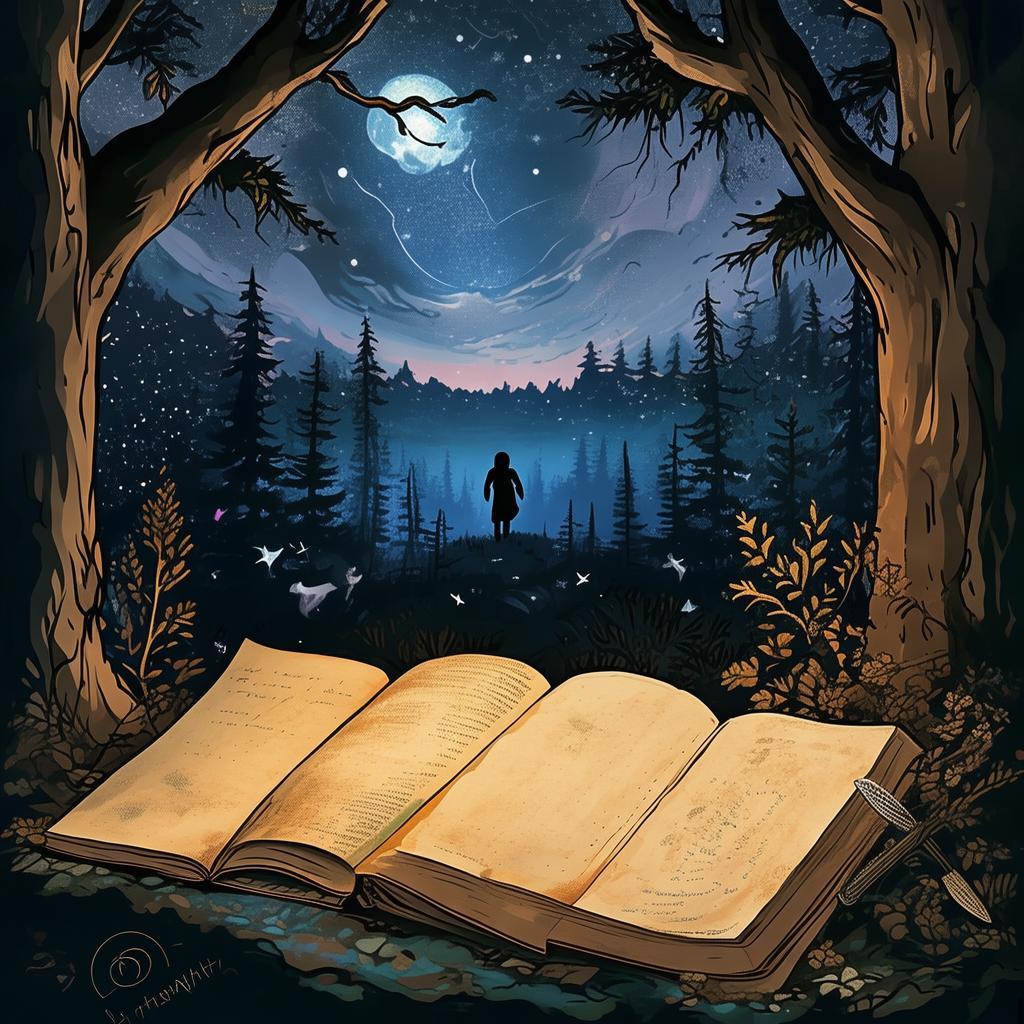The Scholar's Dilemma: A Labyrinth of Betrayal
The air was thick with the scent of ancient parchment and the faint hum of the labyrinth's ever-present energy. Scholar Lin Wei stood at the entrance, his eyes scanning the intricate patterns etched into the stone walls. The Labyrinth of Asterisk was a place of legend, a place where the boundaries between reality and illusion blurred, and where the mind was the greatest enemy.
Lin Wei had always been a man of logic and reason, but the labyrinth had a way of twisting his thoughts into knots. He had entered seeking knowledge, but now, he found himself trapped in a web of his own making. The betrayal had come from an unexpected quarter, a trusted mentor who had turned against him, planting seeds of doubt in his mind.
"The key to the labyrinth lies not in the walls, but in the mind," his mentor had once said. Now, Lin Wei realized the truth in those words. The labyrinth was a metaphor for his own internal struggle, a battle against the shadows of his own conscience.
As he ventured deeper, the labyrinth seemed to grow more complex. The corridors twisted and turned, and the walls seemed to whisper secrets in the wind. Lin Wei's mind raced as he tried to decipher the riddles that appeared before him. Each answer brought him closer to the heart of the labyrinth, but also to the truth of the betrayal.
One riddle, etched into the cold stone, seemed to stand out among the rest:
"What is it that is not alive, but can move? What is it that has no mouth, but can speak? What is it that has no legs, but can walk?"

Lin Wei pondered the riddle, his mind racing with possibilities. The answer, he realized, was his own shadow. It was his own doubts and fears that were moving him forward, guiding him through the labyrinth. The shadow was the manifestation of his inner turmoil, the embodiment of the betrayal.
As he continued his journey, Lin Wei encountered more riddles, each one more challenging than the last. He began to see the labyrinth not just as a physical space, but as a reflection of his own psyche. The walls, the corridors, the riddles—all were part of his own mind, and the labyrinth was his own creation.
One particularly difficult riddle read:
"I have cities, but no houses. I have mountains, but no trees. I have water, but no fish. What am I?"
Lin Wei's mind raced, but it was his friend and fellow scholar, Mu, who provided the answer. "A map," Mu said with a knowing smile. "It represents the world as it is, not as it appears."
The realization hit Lin Wei like a bolt of lightning. The labyrinth was a map of his own mind, a representation of his inner world. The cities, mountains, and water were his thoughts, his emotions, his fears. The labyrinth was a reflection of his own life, and the betrayal was a part of that life.
As he reached the heart of the labyrinth, Lin Wei found himself facing the ultimate challenge. A mirror stood before him, reflecting his own face, his own soul. In the mirror, he saw the face of his mentor, twisted and twisted with malice.
"Lin Wei, you must face the truth," the mentor's voice echoed in his mind. "The betrayal is not just a riddle; it is a part of you."
Lin Wei took a deep breath, and with a newfound clarity, he stepped forward. He confronted the mentor's reflection, and in that moment, he forgave himself. The betrayal was a part of him, but it was not who he was. He was more than the sum of his mistakes and his fears.
With a newfound sense of purpose, Lin Wei stepped out of the labyrinth, leaving the shadows of his past behind. He realized that the true power of the labyrinth was not in its ability to trap him, but in its ability to teach him. The labyrinth had shown him the depths of his own mind, and in doing so, had freed him.
As he walked away from the labyrinth, Lin Wei felt a sense of peace. He had faced the betrayal, he had faced himself, and he had emerged stronger. The labyrinth had been a journey of self-discovery, a journey that had changed him forever.
In the end, the Labyrinth of Asterisk was not just a place of danger and deceit, but a place of truth and enlightenment. It had taught Lin Wei that the greatest enemy he would ever face was not an external one, but an internal one. And with that knowledge, he was ready to face whatever life had in store for him.
✨ Original Statement ✨
All articles published on this website (including but not limited to text, images, videos, and other content) are original or authorized for reposting and are protected by relevant laws. Without the explicit written permission of this website, no individual or organization may copy, modify, repost, or use the content for commercial purposes.
If you need to quote or cooperate, please contact this site for authorization. We reserve the right to pursue legal responsibility for any unauthorized use.
Hereby declared.









